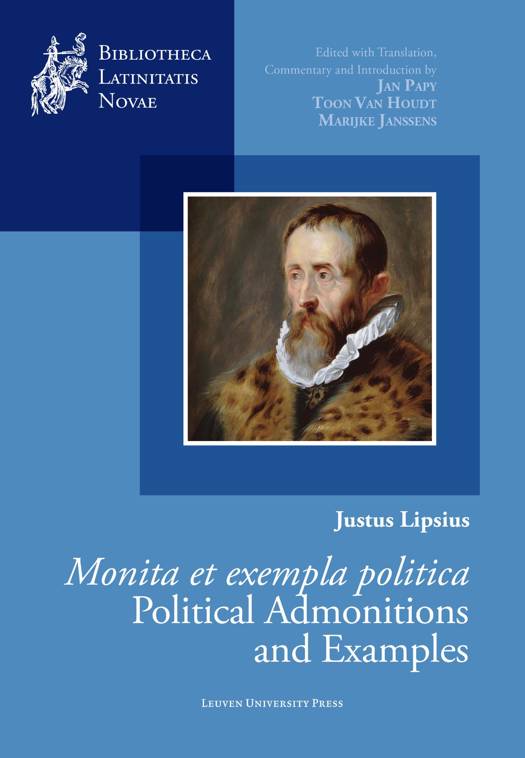
- Afhalen na 1 uur in een winkel met voorraad
- Gratis thuislevering in België vanaf € 30
- Ruim aanbod met 7 miljoen producten
- Afhalen na 1 uur in een winkel met voorraad
- Gratis thuislevering in België vanaf € 30
- Ruim aanbod met 7 miljoen producten
Zoeken
Justus Lipsius, Monita et exempla politica / Political Admonitions and Examples E-BOOK
Edited with Translation, Commentary and Introduction
€ 90,00
+ 90 punten
Omschrijving
Political thought and philosophy in 17th-century Europe
In 17th-century intellectual life, the ideas of the Renaissance humanist Justus Lipsius (1547-1606) were omnipresent. The publication of his Politica in 1589 had made Lipsius' name as an original and controversial political thinker. The sequel, the Monita et exempla politica (Political admonitions and examples), published in 1605, was meant as an illustration of Lipsius political thought as expounded in the Politica. Its aim was to offer concrete models of behavior for rulers against the background of Habsburg politics.
Lipsius' later political treatise also forms an indispensable key to interpret the place and function of the Politica in Lipsius' political discourse and in early modern political thought. The Political admonitions and examples - widely read, edited, and translated in the 17th and 18th centuries - show Lipsius' pivotal role in the genesis of modern political philosophy.
In 17th-century intellectual life, the ideas of the Renaissance humanist Justus Lipsius (1547-1606) were omnipresent. The publication of his Politica in 1589 had made Lipsius' name as an original and controversial political thinker. The sequel, the Monita et exempla politica (Political admonitions and examples), published in 1605, was meant as an illustration of Lipsius political thought as expounded in the Politica. Its aim was to offer concrete models of behavior for rulers against the background of Habsburg politics.
Lipsius' later political treatise also forms an indispensable key to interpret the place and function of the Politica in Lipsius' political discourse and in early modern political thought. The Political admonitions and examples - widely read, edited, and translated in the 17th and 18th centuries - show Lipsius' pivotal role in the genesis of modern political philosophy.
Specificaties
Betrokkenen
- Uitgeverij:
Inhoud
- Aantal bladzijden:
- 696
- Taal:
- Nederlands
- Reeks:
Eigenschappen
- Productcode (EAN):
- 9789461664204
- Verschijningsdatum:
- 31/05/2022
- Uitvoering:
- E-book
- Beveiligd met:
- Digital watermarking
- Formaat:

Alleen bij Standaard Boekhandel
+ 90 punten op je klantenkaart van Standaard Boekhandel
Beoordelingen
We publiceren alleen reviews die voldoen aan de voorwaarden voor reviews. Bekijk onze voorwaarden voor reviews.










